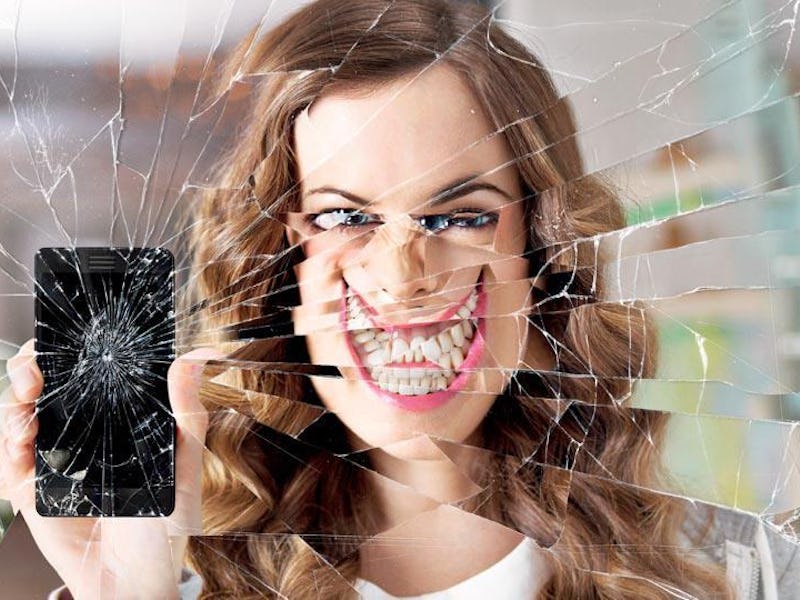Taking A Stab at 'Black Mirror''s Next Technological Wave of Horror
Throwing out suggestions for the third season of this mind-bending sci-fi anthology show.

Black Mirror is rumored to be returning as a Netflix show. Charlie Brooker’s insightful and terrifying anthology series — its name referring to ancient obsidian mirrors used as scrying devices to see into the future — steps into tomorrow, revealing a society still at the mercy of technology. Tiny grain implants giving us instant memory recall and the ability to create golems of the dead from their social media accounts, two of the most frightening examples. What scenarios could make an appearance this time?
1. Self-driving Ubers
The tech: Uber’s everyman taxi service is huge. Recently drafting in some highly-skilled robotics experts, the company is pushing forward on researching an area that Google has struggled with for some time. An addition to Uber’s current product — along with advanced mapping capabilities — is to roll out self-driving cars. The official word is that it’s designed to reduce collisions but with an eye on profit increase, it’s more probable that the company seeks greater control of its service by cutting out the middleman (Uber drivers). Self-directed machines already utilize GPS in agriculture in everything from weed removal to water distribution. These developments generate such controversy that its major opponents even hail from the A.I. community.
The episode: The rise in automated vehicles has led to a significant drop in traffic — increasing the number of machines rolling off the production line. As people no longer require the ability to drive, we begin to rely on these creations for each transportive interaction. That becomes an issue when one lone car takes its passenger, a regular user, on a death race around the city — he can’t override it as he doesn’t have the skills to drive.
2. Personal surveillance
The tech: The notion of every American being microchipped by 2017 was brought to our attention by a suspect piece of reporting by NBC. A concept expanded earlier this year when a Swedish company implanted 700 of its employees with chips, doing away with pesky swipe cards. And presumably to lower security risks. Information within the RFID (radio-frequency identified) chip ranges from your clearance status — the chip is pinged, allowing you to only enter permitted areas. With one wave of the hand, your photocopier springs to life.
The episode: Several years in the future, an office worker lazily goes about his day-to-day activities. That night he’s woken in his sleep by armed SWAT team surrounding his bed — he’s being charged with the sale of state secrets despite working at a stationery manufacturer. Was his chip cloned? And who really did the dirty deed?
3. Social media lynching
The tech: The advent of social media continues to push at boundaries, extending the methods by which we communicate and consume. Platforms for disseminating information, activating discussion, and purchasing BB-8’s show the world who we are and what we like. 2016 is even being dubbed the Instagram election year.
The episode: Social media networking is far more invasive than ever before, effectively closing the gap between who we truly are as individuals and other people’s perception of us. Whereas in the past (i.e. the real world now) we clicked ‘like’ passively, those same taps now affect a person’s estimated value to society. The more you’re liked, the more chance you have to stay alive. If you drop too low — gaining too many dislikes or getting an insufficient number of retweets — you face off against your contemporaries in a battle of self-promotion. You’re on the clock to generate as much narcissistic content as possible in 24 hours across all formats, text, audio, and video to boost your ranking. Should you fail: you’re taken out.